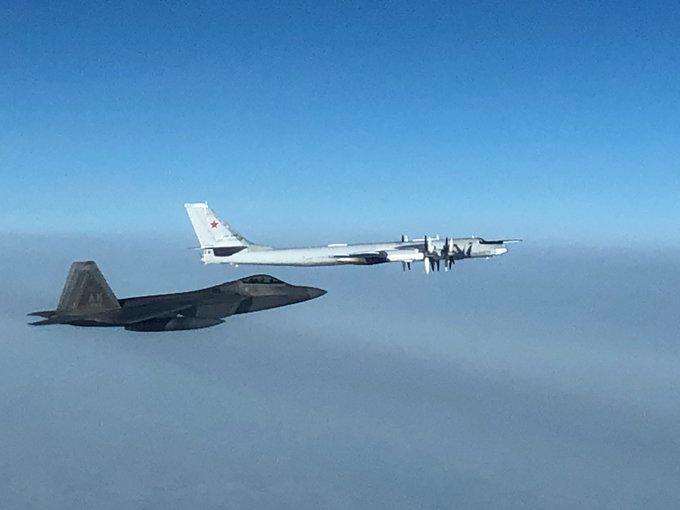Four Chinese and Russian military aircraft were intercepted by U.S. and Canadian fighter jets off the coast of Alaska on July 24, according to the North American Aerospace Defense (NORAD).
Fighter jets “detected, tracked, and intercepted” two PRC H-6 and two Russian TU-95 military aircraft in the Alaskan Air Defense Identification Zone (ADIZ), said NORAD, which oversees North American airspace and its defense, said in a press release.




